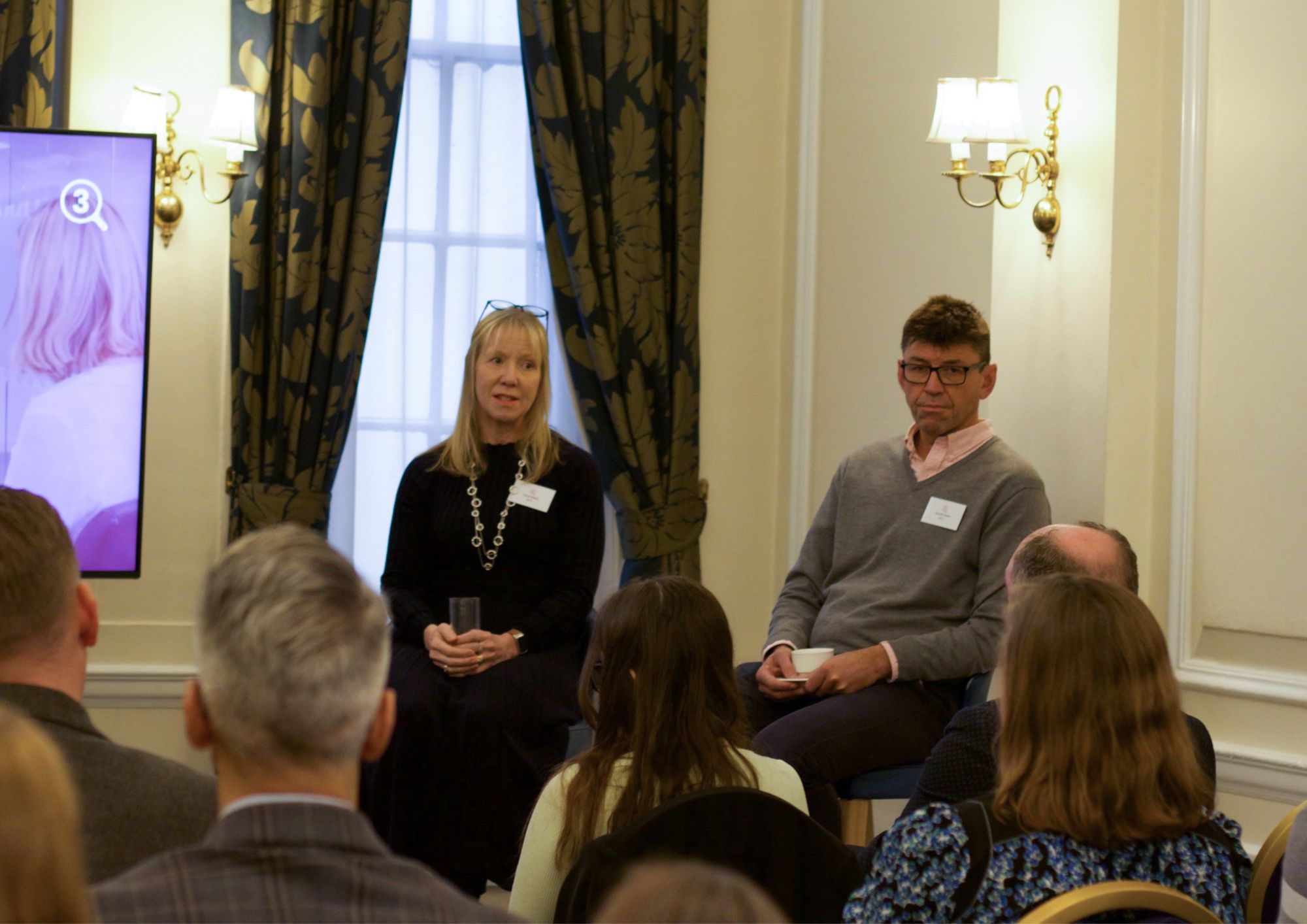
Upload Your CV
Send us your CV and a member of the team will be in touch to discuss open opportunities with you.
By Gareth Helm, Non-Executive DirectorFollowing a successful CMO career at HomeSer...

Following a successful CMO career at HomeServe and McDonald’s, Gareth Helm is a Non-Executive Director at Purplebricks and Higgidy. Gareth recently featured as a panellist for our first CMO to NED event, advising Chief Marketing Officers on how to make the transition themselves.
He is passionate about supporting C-suite marketers in their careers, having published his book, 'The Marketing Leader's Code' and launched his website, www.sideminds.co.uk.
Gareth has written this article off the back of our event to share his learnings with the wider marketing community.
A couple of weeks ago I was on a panel organised by 3Search and hosted by Rowan Fisk on the topic of ‘How to go from CMO to NED’. It was the day of the underground and teacher strikes, so I imagined a low turnout, but the room was packed. Maybe I shouldn’t have been surprised. I’ve been regularly asked about being a NED, and last week read new research amongst C-suite marketers, which showed 4/10 wanting to be NEDs/Plural and 1/4 wanted to do something different but weren’t sure what.
There aren’t books or career guides for senior marketers, so no wonder the 3Search event was so popular. This, however, felt like the start of a wider conversation, so spurred on by this here are my top 10 things to know about becoming a NED. These are my experiences combined with wider wisdoms that I picked up from my fellow panellists, Carol Welch and Chris Clark.
Understand what motivates and drives you. You may have been the marketing leader elsewhere, but as a NED you won’t have the same marketing responsibility. You need to be prepared to learn new skills, especially around governance and understand the wider business as a whole This means getting into the detail of the full Board packs and being prepared to constructively challenge, especially on areas you don’t understand.
Like any team, the Board’s overall make-up is important, and you need to understand your value (look at most FTSE business and each person’s unique competencies are listed). Your skills therefore need to be framed carefully in your CV. Boards are interested in your core skill set, not the detail of a marketing campaign, so your NED CV is different to an Executive CV. I find marketers are uniquely placed for Board NED positions, because they are focused on the customer and will have been key connectors in the past across the business, so you need to make these skills clear.
NED opportunities can come through a variety of different channels, from head-hunters (contact me and I will send a list) to private equity, NED vacancy sites (e.g. Dynamic Boards, Nurole) and your own personal network. Knowing your value helps you target which opportunities are right for you. My background experience in pet care and property lead to my tails.com and Purplebricks NED positions, whilst my experience in subscription businesses led to wider advisory roles.
Getting your first NED position is the hardest. It can take time to land but persevere and be prepared to generously offer your time and expertise for free. This makes start-ups or the charity sector easier initial ways in. If you are planning a NED role alongside your executive position, make sure you have your CEO’s backing. The experience of being a NED is a learning opportunity and Board schedules are normally booked a year in advance, so there should be limited conflicts and instead be a net positive for all.
Check the skills across the board, consider what role you are filling and the amount of time they will require from you. Understand what you will and won’t do. You can’t be a low cost CMO! Don’t also expect detailed feedback or KPIs. There is rarely enough time in Boards for feedback to be given to individuals and you need to be comfortable judging your performance based upon your own emotional intelligence. If you need lots of feedback, this may not be the right move.
There can be a misconception that NEDs work for just a few days a year and get paid high fees. Boards have a clear meeting schedule through the year, which NEDs need to attend either virtually or in person. Each of these will require a high amount of reading and preparation. On top of this NEDs need to be able to dive in to support topics unique to their skillset. This can mean at short notice helping with strategy, recruitment or new partner introductions, through to being a member of wider committees like Remuneration, Risk, Audit, Nomination or ESG. This can be time consuming and maybe not what you are expecting.
As a NED you need to be able to help shortcut the processes, so the company can reach its goals quicker. This means having your own little black book of top talent. Beyond your own expertise, who are the companies and individuals you know and trust that you can introduce to help accelerate a project or initiative? Who else can you personally call upon to give you wider market insight? You need to stay relevant, so what are the communities that help you stay connected and informed on wider trends.
In 2022, the FCA required UK listed companies to report on the representation of women and ethnic minorities on their boards and executive management teams. Their new diversity targets mean at least 40% of the board in listed companies need to be women and one of the senior members need to be a woman or from an ethnic minority background.
Most NED roles are for 3 years and often are extended for a second term. In listed companies, this is decided by a vote from shareholders. Remuneration can vary from pro bono, through to equity or a set salary. As a NED you carry the same legal responsibilities and liability as fellow Executive Directors, so need to understand and perform these duties, carry out your own due diligence and consider if insurance is needed (Director and Officers Insurance). Like joining most companies, you should also expect an induction programme, so you have a comprehensive understanding of the business and employees.
The NED position gives an opportunity to constructively challenge, give independent judgement, monitor the executive management performance and influence the businesses growth. If you have the time to dedicate, it is a hugely rewarding opportunity that broadens your skill set, whilst also testing your core specialist knowledge.
Hopefully these insights are helpful. I have been a serial CMO and over time became an experienced NED, firstly by working for tails.com, then Higgidy and Purplebricks. More recently I have switched to a fully plural or so called “portfolio career”, so can support marketers making similar moves. For more information or advice please contact me directly or record your details at www.sideminds.com.
 A big thank you to Gareth Helm for sharing his knowledge with us. It was an absolute pleasure having him as a panellist for our CMO events. To hear more advice from Gareth, be sure to check out his book, ‘The Marketing Leader’s Code’.
A big thank you to Gareth Helm for sharing his knowledge with us. It was an absolute pleasure having him as a panellist for our CMO events. To hear more advice from Gareth, be sure to check out his book, ‘The Marketing Leader’s Code’.
If you’re looking for more support with your career as a CMO, be sure to stay in touch with us. 3Search Executive are dedicated to helping you be better connected as an individual. Whether this be facilitating your next career more, hiring top talent into your teams, or broadening your personal network.